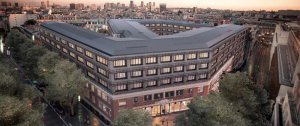Emulsions as a tool to study tissue mechanics
Emulsions, i.e. packings of oil droplets in water, are a great tool to explore the structure of jammed matter. Indeed, contrary to classical granular systems, emulsions can be made transparent, allowing to image their 3D structure through classical microscopy techniques. It is then possible to study straightforwardly how the packing structure depends on parameters such as the size distribution of the droplets, their interactions, or an applied pressure.
Beyond these approaches, emulsions can also be tuned to exhibit properties that resemble those of biological tissues, with the general goal to understand the physical basis of collective remodeling during development. These biomimetic emulsions are designed to mimic the minimal mechanical and adhesive properties of cells in biological tissues. Such a biomimetic approach allows to study the mechanical properties of tissues in a simplified framework, i.e. a framework in which the inherent biological complexity due to intracellular regulations is bypassed. In particular, we focus on the interplay between adhesion and mechanical forces and how it regulates the emergence of tissue architecture during morphogenesis. To do so, we first studied the elasto-plasticity of these emulsions as a function of interdroplet adhesion and showed that adhesion alone was able to guide the emergence of structuration in biomimetic emulsions.
In parallel to this in vitro approach, droplets can be used to probe cellular forces inside biological environments. Indeed, droplets can be made soft enough to probe forces exerted by cells or tissues : knowing their surface tension, it is then possible to quantify the local exerted stress from their observed deformation. We are currently using droplets to unravel the role of the extracellular matrix in the mechanical coupling of cells and tissues during morphogenesis.








